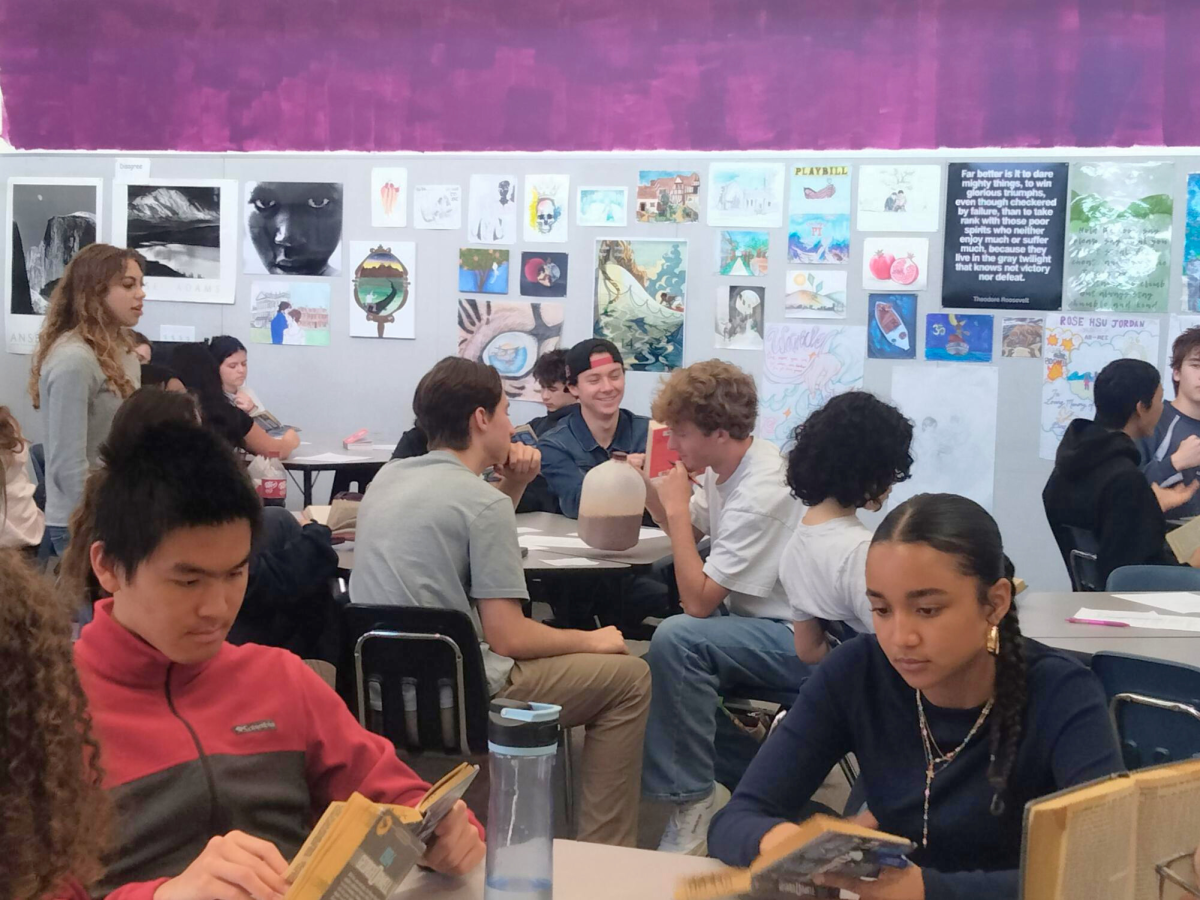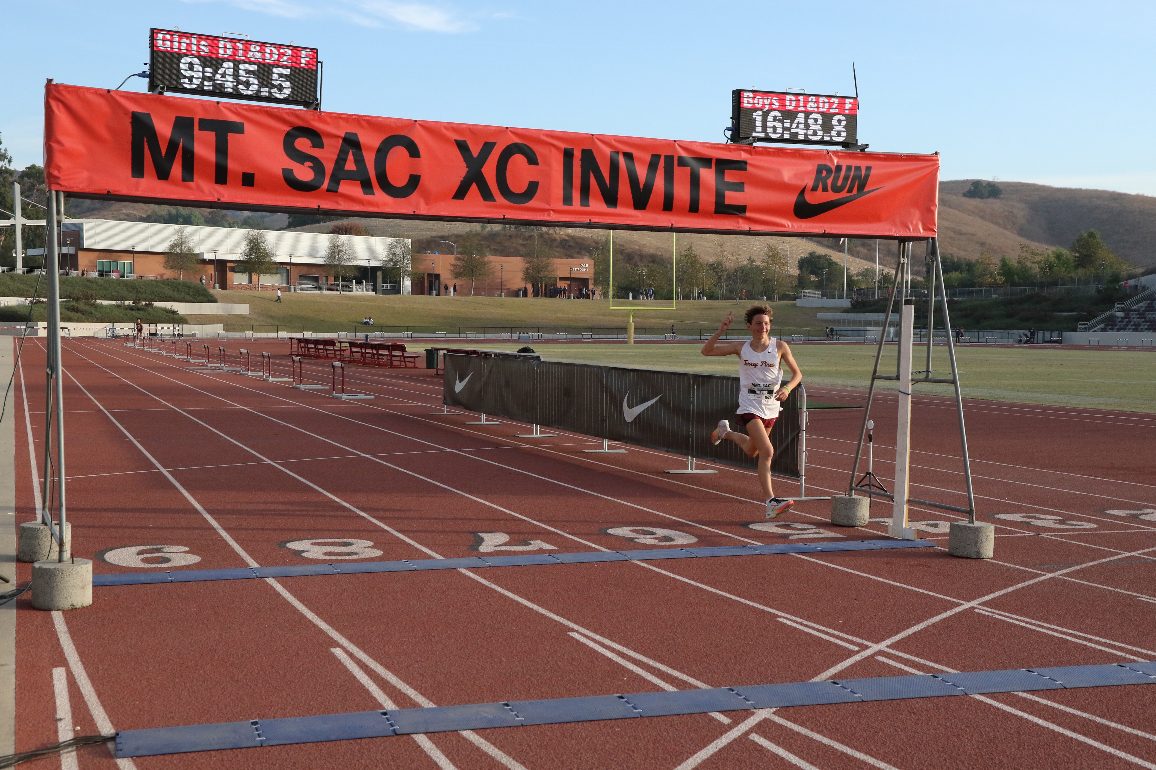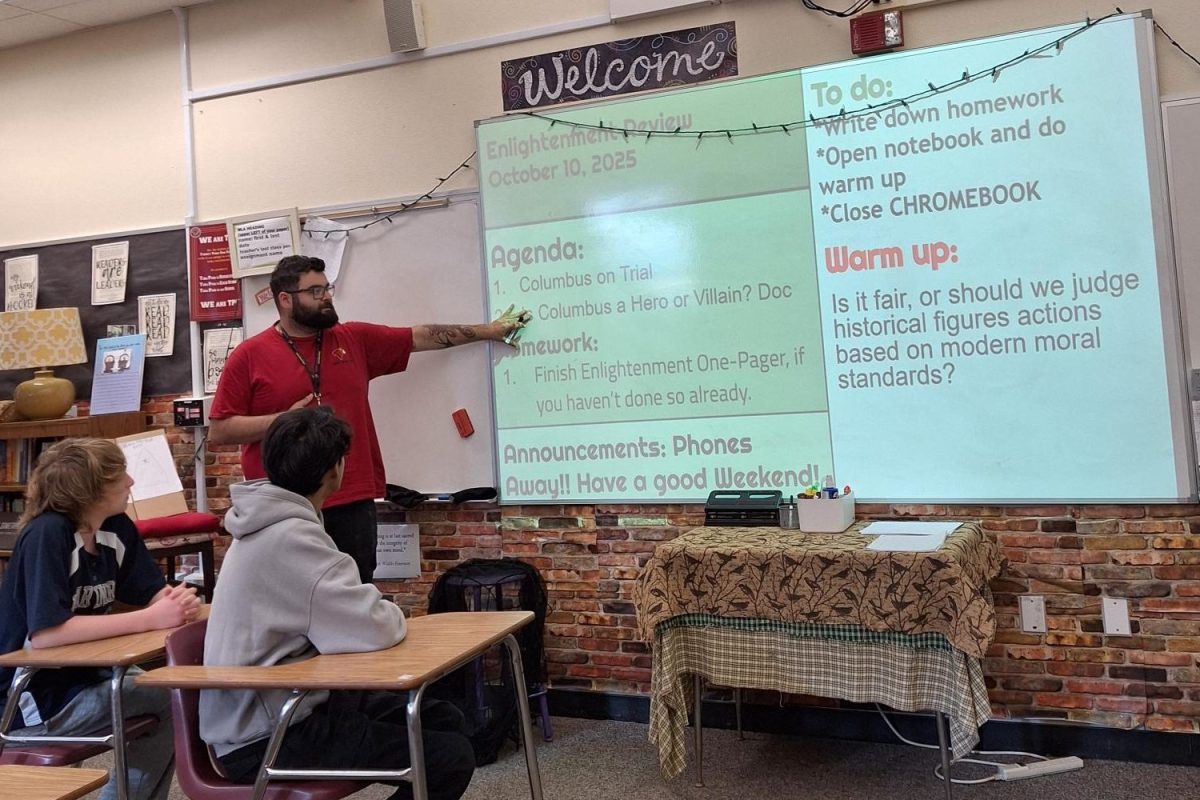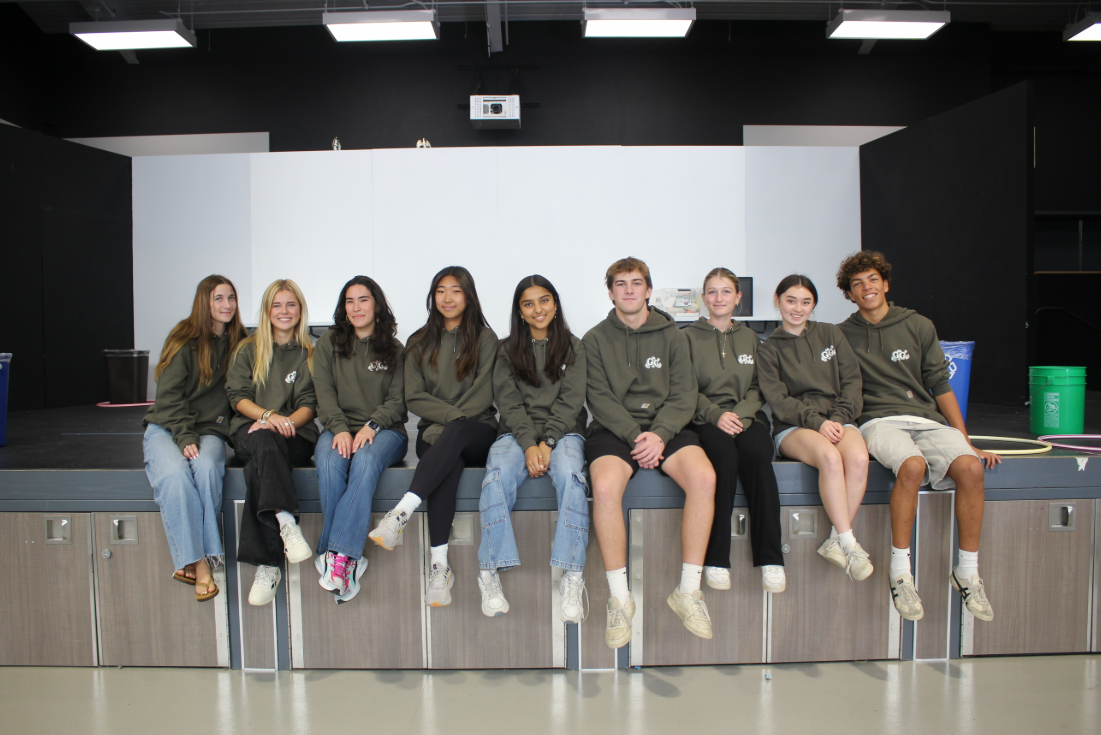The reputation of senior year often precedes it: senioritis, college applications and decisions and the experience of closing out high school. With this transitory phase between adolescence and adulthood, the imminent finality of it all can lead to students feeling a myriad of complex emotions toward school, resulting in equally varied behaviors. Although seniors all deal with change in their own ways, many would say that there are common trends among the soon-to-be graduates.
Lisa Callender, who teaches AP English Literature and AP Seminar, has taught seniors for more than 10 years and is well-versed in these patterns.
“In the first semester, students are very overwhelmed,” Callender said. “They’re working hard, but they’re also overstretched because many of them are working on their college [applications] as well as their schoolwork. Although in the last few years, students are getting a bit better about doing a lot of their college [application] stuff during the summertime, which is good. By second semester, we start to see that tapering off of the seriousness about their studies and motivation. It starts dwindling in January, but really hits the wall come March. Students are a little tired and thinking of new things so it’s really hard to keep them motivated and to focus on school.”
At the beginning of second semester, Callender gave a presentation on common senior-year patterns to help her students prepare for the months ahead.
“I think it’s really good for students to know what is ahead of them and to be cognizant of that … I think … we all need those reminders because as we go through it, we don’t necessarily see it,” Callender said. “But someone who’s been observing [seniors] sees these and if they pointed it out to you, you’re more apt to pay attention to those kinds of signals or things happening in your life. I think if you’ve heard that this is common, then you don’t feel so very alone in it and maybe you’re more open to discuss it as well.”
Julia Biderman (12), recalled the presentation.
“Something I remember vividly [from the presentation] was ‘senior zombies’ and that the case of senioritis is real around senior year — we start getting very lazy and we already get this summer and after high school mindset before the school year even ends that she warned us about,” Biderman said. “I have noticed it in myself and also my friends, everyone around us seems to have [senioritis].”
While Biderman believed that it is helpful to be warned of incoming senior year obstacles such as senioritis, Sylvia Olson (12) disagreed.
“People hear about senior year from the people who’ve already graduated or their parents or all their friends, and they kind of know what’s in store, and I feel like it’s almost a self-fulfilling prophecy in a way,” Olson said. “I think the stuff about senioritis is more harmful than beneficial because if you have the idea that everyone else is also getting lazy and not putting in the effort around you, I feel like you’re more likely to also view senior year as something where you don’t have to keep trying, when that’s not the case at all. Senior year you still have to put in the effort to keep the grades.”
Being informed about senioritis and general senior year experiences, however, is extremely beneficial for teachers, according to Callender.
“[These patterns in seniors] really affect my lesson plans,” Callender said. “I plan my 1984 lessons purposely in the springtime to try and add a little bit of fun and humor to keep students engaged. As a teacher, I want to make sure I can maximize their learning, even when they’re in their senioritis phases.”
These efforts are not overlooked by all students.
“All [teachers] notice these changes and they’re more sympathetic towards seniors because of this,” Biderman said. “Some of my teachers try to really hammer in the work and try to make them aware of senioritis and have seniors take more accountability for their work even though they are about to leave high school.”
While senioritis may seem entrenched in the senior experience, Biderman provided some advice on how to combat it.
“Try to spend all your class time listening to the teachers and try to finish all your homework before [class ends] because senioritis is real and you’re not going to want to do work at home,” Biderman said. “Just try to make it as easy as you can for your future self by doing as much as you can beforehand.”
Beyond senioritis, other patterns in seniors surface in the second semester.
“I notice, of course, romance breakups, but then also I see a lot of fights between friendships and friendship breakups,” Callender said. “This is my armchair psychology, it’s in no way scientifically proven, but I do think sometimes there’s this underlying subconscious at work that it’s easier to get in a fight and break up with a friend than it is to say goodbye sometimes. I also think part of it is because of the immense stress and, even though we don’t want to admit it, the competition and jealousies of college that can’t help but sometimes affect friendships.”
Biderman observed this phenomenon in her own life.
“Lots of my friends’ friends drifted apart and I have people who joined my friend group because they drifted from their friendships or they got into big fights,” Biderman said. “I’ve noticed a lot of transparency in friend groups now that the year is ending, which causes a lot of fights and the ending of many friendships. Jealousy and comparison [is a pretty universal senior experience] … I see a lot of people comparing schools and people comparing majors.”
While she has not seen major friendship fights, Olson said it is especially easy to grow apart from friends come senior year.
“I think it’s easier to drift away with people as you have less classes and the idea that you’ll have friends in college and you’ll meet new people in college, so I think it’s easier to just stop hanging out with people rather than get into huge blow up fights,” Olson said. “It’s your senior year, you don’t really care because you’re going to go away and it’s kind of like a ‘whatever happens, happens’ mindset.”
While most trends may seem negative, Callender observed positive patterns as well.
“I noticed that there are some kids who really kind of recognize, they have this epiphany, that this is their last year, and they really begin to take advantage and do things they never did their whole four years, like go to a football game or go to a show,” Callender said.
To incoming seniors, Olson provided advice.
“Senior year is the best place to reach out to new people and make those friends because it’s your last year, you may as well enjoy it and just focus on new things,” Olson said.










